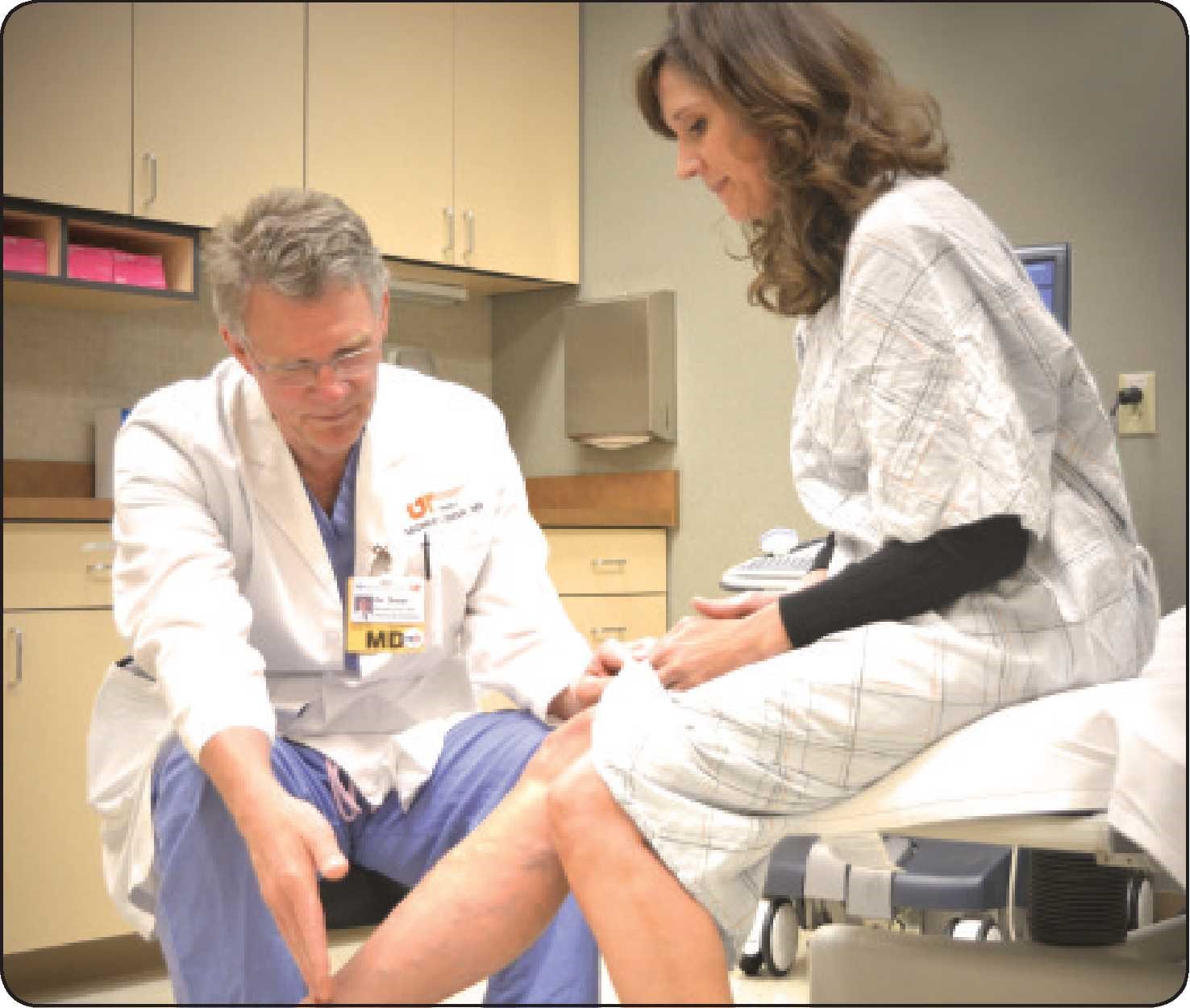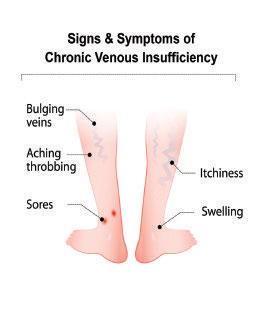Bulging, unsightly veins in your legs are something no one wants to experience - but more than just being embarrassing, varicose veins can signal a more serious health condition. More than 30 million Americans suffer from varicose veins, or the more serious form of venous disease called chronic venous insufficiency (CVI), yet the majority remain undiagnosed and untreated.
"If left untreated, varicose veins can progress to CVI, which can cause pain, swelling and fatigue of the legs, as well as skin damage and ulcers in more severe cases," says Michael Greer, MD , vascular surgeon with the Vein Center at University Surgical Associates. "With varicose veins, the valves that push blood from the legs back to the heart no longer function, causing blood to pool in the legs."
What Puts Me at Risk?
There are several factors that may contribute to varicose and spider veins including puberty, pregnancy, menopause, use of birth control pills and hormone replacement therapy. Aging, standing or working on your feet, obesity and leg injury may also lead to the condition.
Most varicose and spider veins appear because of pressure on the body, making the job of carrying blood from the bottom of the body to the heart more difficult. The veins in the leg endure the most pressure. It's very common for women to develop varicose veins during pregnancy. Changes in hormones and blood volume can cause veins to enlarge, in addition to the extra weight. Some women see improvement after delivery, but women who have multiple pregnancies may have veins that don't go back to normal.
Pelvic Congestion Syndrome
Vein problems can also develop in the upper leg and pelvic region, causing pelvic pain, heaviness and leg pain made worse by standing and relieved by lying down. This condition, commonly called pelvic congestion syndrome, is more accurately labeled as pelvic vein insufficiency and can be treated using the same techniques that treat varicose veins in the legs. It is commonly seen in younger women who have had large babies or multiple children.
Fast, Effective Treatment
The Vein Center at University Surgical Associates specializes in treating all aspects of vein disease - from tiny spider veins to large bulging varicose veins and pelvic vein insufficiency. Our innovative, nonsurgical approaches include radiofrequency ablation and endovenous laser therapy to effectively treat varicose veins and pelvic vein insufficiency.
"Because the valves in the legs can't be repaired, the only alternative is to re-route the blood flow from the disease veins to healthy veins. Using ultra-sound guidance, a catheter delivers consistent and uniform heat that causes the vein wall to collapse and close," says Dr. Greer. "The treated vein then gradually is absorbed into the surrounding tissue. Most patients report a noticeable improvement in their symptoms within one to two weeks."
What's more, we can effectively pinpoint and diagnose vein problems using ultrasound technology in the Vein Center's onsite vascular lab.
It is important to know that not everyone with an abnormal test needs a procedure. Experience and training are necessary to determine who will benefit from a vein procedure.
A Comfortable Experience
At the Vein Center at USA, all procedures are performed by highly trained and experienced vascular surgeons. Most procedures take approximately 60 minutes and are generally offered with the option of conscious sedation, a combination of a sedative and pain blocking medication administered through an
IV. Conscious sedation is designed to help patients relax - many even sleep throughout the procedure
- yet it wears off quickly and doesn't leave patients feeling groggy. Many patients also experience a quick return to normal activities following a vein procedure, typically within a few days.
We know that every person is unique, and so is every treatment plan. Your USA vascular surgeon will tailor your treatment to your specific needs and condition. Call today to schedule a consultation at (423) 267-0466.
Noteworthy:
"If left untreated, varicose veins can progress to CVI, which can cause pain, swelling and fatigue of the legs, as well as skin damage and ulcers in more severe cases." - Michael Greer, MD
MORE INFORMATION
For more information about the Vein Center at University Surgical and their services, call (423) 267-0466.

